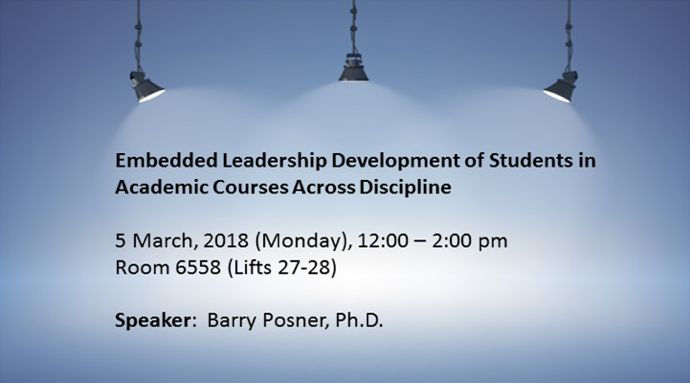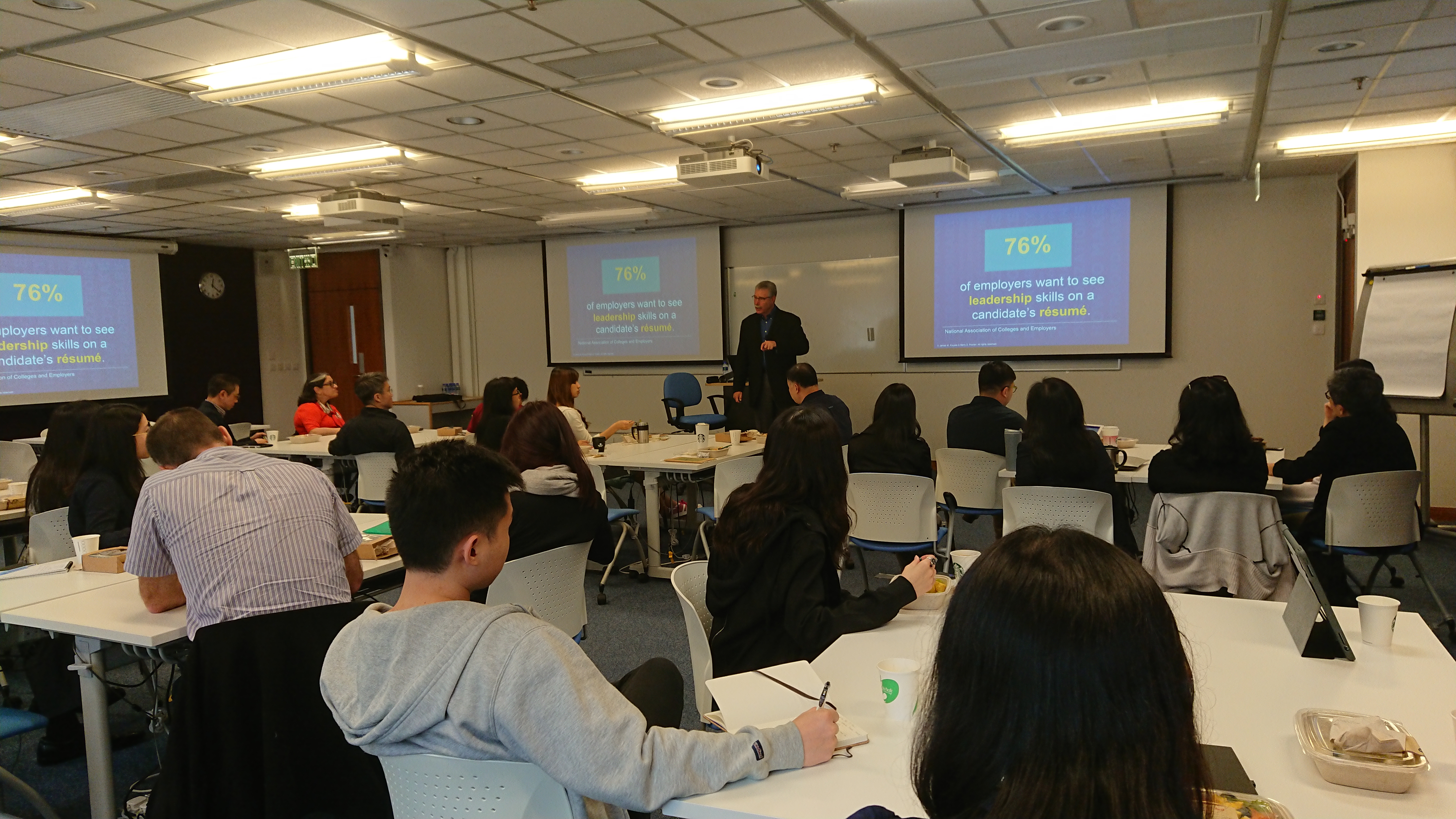
Details of the workshop
Date: March 5, 2018
Time: 12nn – 2pm
Venue: Room 6558 (Lift 27/28), 6/F, HKUST
Summary
As leadership skills are highly sought after by employers, and with more and more employers wanting to see leadership skills on a candidate’s resume, universities are becoming more accountable for developing students’ leadership qualities that prepare them for the future.
On March 5, Center for Education Innovation at HKUST was honored to have invited Professor Barry Posner (Accolti Professor of Leadership at the Leavey School of Business at Santa Clara University) to share with faculty members and teaching staff his well-developed research on leadership education, and explain how the key components of a collegiate leadership development program were applied in his own undergraduate leadership course. The workshop opened dialogues about how students within any discipline could be nurtured into the best leaders they can be to make a difference.
In the workshop, Professor Posner started the discussion by engaging participants in the interpretation of his definition of leadership, “the art of mobilizing others to want to struggle for shared aspirations”. Leadership is “more of an art than a science because art is in the eye of the beholder” and leaders should have the quality to motivate others by free will and free choice in pursuit of a common goal despite the challenges and struggles inherent along. He reassured the audience that leadership is observable sets of skills and abilities that can be learnt and within the grasp of everyone; hence, all students can be trained to liberate their leadership potential. As such, leadership training should not only be limited to those who enroll in certain courses/programs, take positions in student organizations, or assume leading roles in group projects, but be implemented through the curriculum for all students to be involved in the process of leadership education.
The workshop outlined six key conceptual dimensions which form the principles in the design of curriculum for leadership development. Then, the Five Practices of Exemplary Leadership were introduced to be served as an academic model/framework that faculty can incorporate into the design of classes/activities to help students to explore their leadership potential and develop leadership characters. Students can be engaged in one or more of the five practices and encouraged to reflect from their personal best to build the competence and confidence as leaders.
Five Practices of Exemplary Leadership
- Model the Way
- Inspire a Shared Vision
- Challenge the Process
- Enable Others to Act
- Encourage the heart
Professor Posner also shared the leadership course he designed and the instructional resources developed that could be accessed through the links below.

About the Speaker
|
Barry Posner is the Michael J. Accolti, S.J. Chair and Professor of Leadership at the Leavey School of Business, Santa Clara University, where he served for 12 years as Dean. Barry has received the Association for Talent Development’s highest award for Distinguished Contribution to Workplace Learning and Performance, recognized as one of the Top 50 leadership coaches in America, ranked among the Most Influential HR thinkers in the world by HR magazine, listed among the Top 75 Leadership and Management Experts in the world by Inc. magazine, and among Global Gurus Top 20 Leadership Gurus!
He is the co-author (with Jim Kouzes) of the award-winning and best-selling leadership book The Leadership Challenge. With over 2.5 million copies, the book is described as a groundbreaking research study, combining keen insights with practical applications, and has been translated into 22 foreign languages. It is listed among The Top 100 Business Books of All Time, receiving book-of-the-year honors by the American Council of Health Care Executives, Fast Company, and the Critic’s Choice Award from the nation’s book review editors. |
 |









